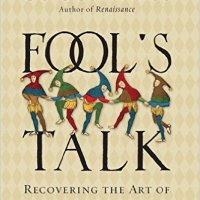 Will Christians be able to sin in heaven? If not, how is that the case? Will we still have free will? What is the nature of a resurrected body? These are all good questions, and many thoughtful Christians wonder about this.
Will Christians be able to sin in heaven? If not, how is that the case? Will we still have free will? What is the nature of a resurrected body? These are all good questions, and many thoughtful Christians wonder about this.
So will there be sin in heaven? The short answer is no, that thankfully we will not be able to sin in heaven. When a Christian dies (or if Christ returns before we die), we pass immediately from this body of sin into glory (2 Cor 5:1-8), so that we will never sin (or be able to sin) again. One of the early theologians of the Church (Saint Augustine) explained that there are 4 states of humanity in terms of sin and grace. He put it like this:
-
Innocent: Adam was created able to sin and able to not sin. Theologians use Latin to describe this as Posse Pecare, Posse Non Pecare.
-
Fallen: After Adam ate from the forbidden fruit, he fell into sin and he (and everyone after him) was not able to not sin. In Latin: Non Posse Non Pecare.
-
Redeemed: When a person is redeemed from sin (becomes a Christian), he/she is once again able to not sin. In Latin: Posse Non Pecare.
-
Glorified: When a Christian is “glorified” in heaven, he/she is not able to sin. In Latin: Non Posse Pecare.
What all this means is that Christians should have no fear of ever sinning again in heaven. This is so even though we will still have free will. The reason you can be sure you will not choose to sin is that your heart and nature will be purified from all sinful inclinations and desires. So essentially, we will be free to do and think as we please, but we will be unable to commit sin and think anything sinfully. The nature of free will is not the ability to do anything at all, but the ability to do as we please. True freedom will finally come in heaven, for we will be free from our bondage to sin. We’ll still be able to do as we please (as humans always are), but our glorified nature will only desire to do that which is good and pleasing to God.
So what can we expect from new resurrected bodies? The Christian gets a resurrected body–but so does the non-Christian. The difference is that the Christian is resurrected to everlasting life (a “spiritual” body, which is definitely a material body that is controlled by the Holy Spirit) but the non-Christian is resurrected to everlasting punishment/death (Acts 24:15). Admittedly, we know less about the resurrection bodies of the unjust because the Bible doesn’t talk much about it. I would suppose that they don’t get their “old bodies” back, since they will have to live in everlasting punishment in those bodies. There is a general consensus among Bible scholars and theologians that the new bodies for the just and the unjust will definitely have some continuity with our old bodies. For example, it is the old body that is raised. And our new bodies will be recognizable to others who knew us in our old bodies. The paradigm of course is Christ’s resurrected body. The disciples recognized him and he even had scars from wounds in his old body. Since Jesus is the firstborn of the resurrection, then our resurrected bodies will be parallel to his (without perhaps some of his special divine powers). Whatever we know or don’t know about the glorified-final state of believers, we must never lose sight of the fact that our hope is not in a disembodied existence in an ethereal heaven, but in a material new creation where we will live in the presence of the resurrected Christ in our own resurrected bodies.
Someone might ask: Is it the Holy Spirit that prevents us from abusing our free will to sin in heaven? Again, I think it’s best to see the issue through the lens of Adam and his probationary test in the garden. Adam was created innocent, and he truly had the ability to not sin. But he chose to sin. If he had passed the test, then theologians reason that he would have somehow been confirmed in his righteousness, and God would have confirmed his sinlessness by glorifying (perfecting) his innocent nature so that from now on he would have a perfect sinless nature. The Holy Spirit would not then be restraining Adam’s nature from committing sin because Adam would by nature be incapable of sin. Instead, I think the Holy Spirit’s role would be indwelling Adam to live the glorious, sinless, righteous life. Now, remember that since Adam actually sinned, the stages of humanity include (2) fallen and (3) redeemed between (1) innocent and (4) glorified. In the hypothetical above (if Adam did not sin), the stages would have been 1 and 4. But what actually happened produced the stages 1, 2, 3, and 4.
This is just the long way of saying that in heaven, I think we won’t sin because our natures will be glorified (i.e., incapable of sinning), and the Holy Spirit will indwell us to walk by the Spirit, not restrain us from sin because we’ll be incapable of sinning (by God’s glorifying grace, of course).
Paul tackles a few related questions connected to why we still sin in Romans 5-8. The thrust of his argument is that we are dead to sin and are now alive to God. Through faith in Jesus Christ, we have been baptized into his death. And if we are “dead” then sin no longer reigns in our mortal bodies. Therefore believers have the ability to resist sin by fleeing from temptation. But that doesn’t mean that we still won’t sin. After all, Paul argues, believers are still alive in this world and are still carrying around the “old man” of the sinful nature. It is now our calling as redeemed sinners united to Christ in his death–but also united to him in his life-giving resurrection–to say no to sin. As long as we find ourselves still living in the shell of the old self, we will continue to commit sin.
So what’s the difference in natures between the fallen man and redeemed man? Simply, the fallen man is a slave of sin and cannot set himself free from the desire to keep on sinning. By God’s grace, the redeemed man is free from this slavery and no longer desires to sin. In his mind he is free, but in his body he is fighting the war against the last vestiges of sin. But make no mistake, he has truly been set from the bondage of sin. Paul thus encouraged us to stop sinning because it no longer controls us. We are no longer slaves of sin but slaves of Christ. We will not stop fighting this battle between the mind of Christ and the body of sin and death until we are finally delivered from this body into a incorruptible body on the last day. Until that day comes, we fight on, pressing onward and upward to the goal for which Christ has called us heavenward.














Thank you so much for this article. I feel better about myself now :)
I have thought about this question quite a bit and I notice several things about your response.
How do you think you “know” the things you have said in this article? It seems to me all you do is assert lots of things with no evidence. Why should I accept what you say? Where did your knowledge of these things come from – indeed why should we believe what Augustine thought? If I was a cynical person I might just think that you were saying these things because you like them. Is there another reason?
You also ignore the very obvious questions which follow on from what you say. It seems you believe that god is going to make it impossible to sin but apparently chose not to do this right at the very beginning. He knew perfectly well what would happen when Adam and Eve were in the garden and that billions of their descendants would not be saved and suffer eternal torment even though he could have made it all perfect from the start. Why? Lots of christians say that god didn’t make us perfect in the beginning because he doesn’t want robots but your explanation says that’s exactly what he is going to do no matter what language you use to try to dress it up as something different.
Dear “sane”: Your questions are quite serendipitous. Just yesterday this very topic came up during discussion in my adult Sunday School class at church. The last time I remember the topic coming up was this blog post–almost 6 years ago. Were you in yesterday’s class and then anonymously posted 10 minutes later? But seriously, what kind of evidence would be acceptable proof in your mind? From a Christian perspective, if the Bible clearly teaches that those in heaven are no longer able to sin, then that is sufficient proof. If you don’t accept the Bible’s answer to such questions, then I’m not sure I can give any answers that will satisfy you. I offer Augustine’s words as a useful and widely accepted doctrinal summary of the Bible’s teaching on human nature, free will, and sin. Thanks for visiting Dangitbill.